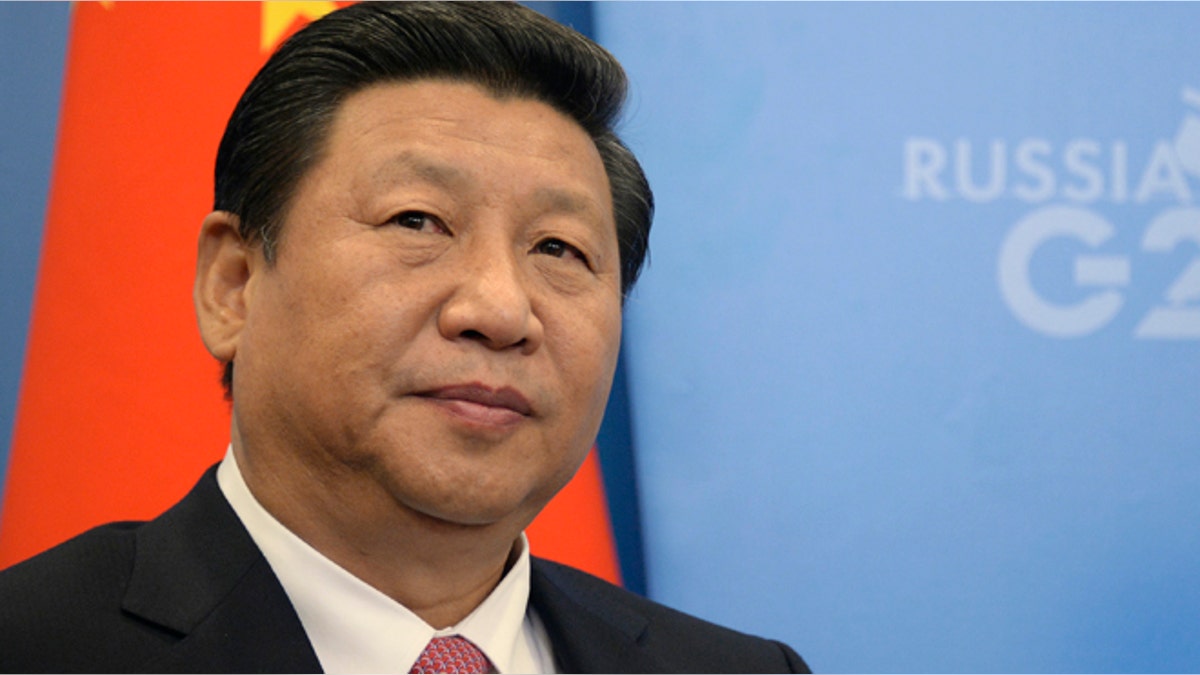
Chinese President Xi Jinping attends a meeting with his Russian counterpart Vladimir Putin at the G20 Summit in Strelna near St. Petersburg, September 5, 2013. (Reuters)
Today is the 64th anniversary of the founding of the People’s Republic of China, so we should not be surprised that, at this moment, there are rhetorical remembrances of its founder, Mao Zedong. Yet Maoist-tinged language has dominated political discourse in Beijing for months, almost since the selection of Xi Jinping as the Communist Party’s general secretary last November.
Xi, mimicking Mao since the second month of his rule, has launched “rectification” campaigns; demanded obedience with “mass lines;” and issued guidance in the form of the Four Make Clears, Six Noes, and Seven Unmentionables. His most ideologically dense directive is the barely understandable Two Non-Negatables, a stout defense of Mao’s deeply mistaken economic policies. Disturbingly, his August 19 speech called for “ideological purification.”
Most observers, both inside and outside China, assume Xi is using the language of the Great Helmsman, as Mao is sometimes called, for personal political advantage. He is, according to various commentators, trying to placate the leftist supporters of Bo Xilai, the charismatic politician who late last month was sentenced to life in prison after an ineptly run show trial in August. Others believe Xi is following the playbook of predecessors by bowing “left” before moving “right” to build the political capital to sponsor urgently needed economic reforms.
Such explanations reveal a politically astute ruler, but they do not fit easily with the dominant narrative about China’s politics. White House officials have told the Wall Street Journal, at the time of the “shirt sleeves” summit in early June between President Obama and Xi, that the Chinese leader had quickly consolidated control in Beijing after his accession. But if this assessment is correct, and most analysts think it is, then there would be little political need for Xi to continue to spout reactionary views because he had already secured his position in ruling circles in Beijing.
[pullquote]
A minority view is that Xi’s throwback rhetoric is mostly the result of political weakness. In a fractured political system, Xi Jinping started out as general secretary with no firm base of support. China watchers say he heads the “Princelings,” but that term merely describes sons and daughters of either former leaders or high officials. These offspring have views spanning the political spectrum and do not form a cohesive group.
Xi became China’s supreme leader because he was the least unacceptable choice, in large part because he was identified with no one faction. Observers who see a weak Xi believe he is seizing what passes for the high ground in Chinese politics by wrapping himself in themes from the early—and troubled—years of the People’s Republic.
Yet whether Xi is weak or strong, he is pushing the country in wrong directions. His words, by themselves, are energizing the country’s leftists and disheartening reformists.
Moreover, Xi’s speeches restrict his flexibility. As Robert Elegant, a biographer of 1950s Chinese leaders, wrote to me and others in August, “It is most unlikely that the head of state would level a public attack on a policy he intends to adopt.”
In many ways, the policy challenges Xi faces are as consequential as those confronting Deng Xiaoping in the period following Mao’s death in 1976. Then, Deng continually talked pragmatism and reversed China’s course, creating one of the biggest and longest economic booms in modern history. Today, however, his investment-led, export-heavy growth model is clearly sputtering, something especially evident if one goes behind official statistics.
It will be up to Xi and his leadership team to completely reorient the economy to one based on consumption, the only sustainable model. Yet it will be hard for him to take the economy apart and build a new one while he is engaged in praise for the first leader of the People’s Republic. As Elegant suggests, the obstacles created by Xi’s words may end up being too high to overcome.
Xi doesn’t have much time. He is expected to roll out his economic program for the next four years at the much-awaited Third Plenum, scheduled for November. While he needs to build a consensus for difficult-to-implement reform, the new leader is saying things like “our red nation will never change color,” which he uttered early this summer as he visited a site from where Mao launched his final attack on Beijing in 1949, shortly before seizing control of the country. That bold statement sounds like the type of thing heard around communist anniversaries, but now Xi needs to pivot and talk like this era’s Deng Xiaoping.
Of course, Mr. Xi could surprise everyone by getting behind urgently needed structural reform, but such an abrupt turn would be inconsistent with the tone of his comments for months. The betting, therefore, is that he will unveil only piecemeal changes.
And Xi cannot forget that the Chinese people are becoming restless. They are unlikely to tolerate a return to Maoist-type rule or even rhetoric. From all we can tell, they want honest governance, a clean environment, and more say in their lives. Ideology seems to have little appeal to the laobaixing, the ordinary folks of that most extraordinary country.
A Beijing leadership talking Mao, on this day or any other, is obviously out of touch. And if Xi continues to think “Red,” he will lose control of a populace demanding positive change.
